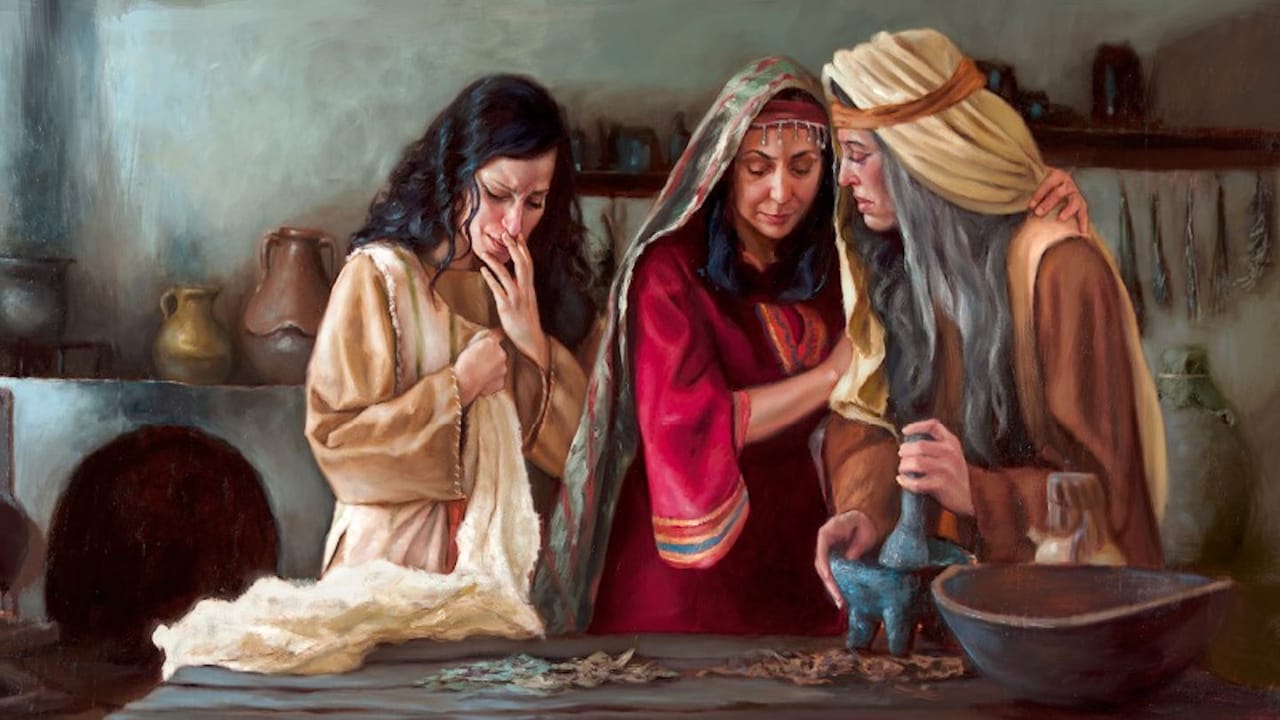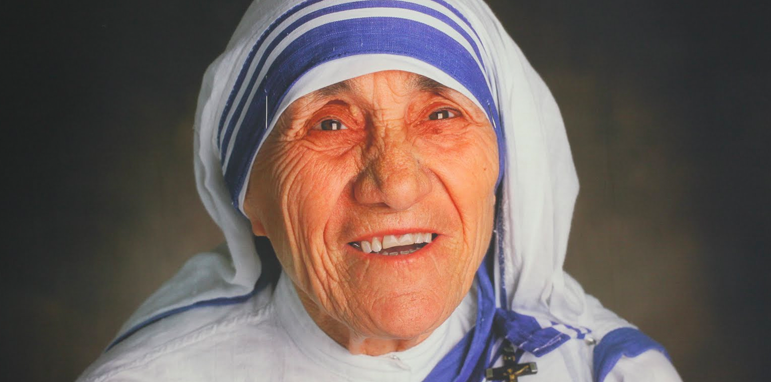
All
of the readings today speak of God’s mercy. In the first reading,
God threatens to destroy the Hebrew people because they created a
molten calf and began to worship it. But Moses implored God’s
mercy, sparing their destruction.
The
responsorial psalm asks for God’s mercy and reveals His compassion
by washing away sin and guilt.
The
second reading from St. Paul’s letter to Timothy, Paul states Jesus
came to the world to save sinners and Paul considers himself the
worst of sinners, but was mercifully treated so in him, Jesus might
display His patience as an example for those who come to believe in
Him.
In
the Gospel, tax collectors and sinners were drawing near to listen to
Jesus, when the Pharisees and scribes began to complain, saying,
“This man welcomes sinners and eats with them.” Jesus
responded by telling them the parable of the prodigal son.
After
spending years away from his family and spending half of his family’s
inheritance, and sleeping with prostitutes, he finally realizes his
sinfulness, and decided to come home, and say to his father, “Father,
I have sinned against heaven and against you. I no longer deserve to
be called your son, treat me as you would treat one of your hired
workers.” And so, he decided to return home to be with his
father.
What
would was he thinking on his way back home? He must have thought his
father would be angry, as well as his brother. Perhaps, he thought
his father would give him a good scolding. Maybe his father would
turn him away, and tell him to fend for himself; after all, he had
enough money to live on, for the rest of his life. Maybe he thought
his father might disown him, after all, the property had been in the
family for generations. He must have slowly walked back, with his
head hanging down, and in fear and trembling, not knowing what to
expect.
But,
Jesus reveals God the Father’s mercy is infinite. In the great
distance, as the son was coming home, the father caught a glimpse of
him, coming over the horizon. The father wipes his tear filled eyes,
perhaps thinking in the distance, it was a mirage, or a stranger. But
no--, he recognizes his son,-- his heart leaps, and he is moved with
compassion. Years of worry and sorrow, turn into joy and excitement.
The elderly father runs, in flight,--- dashing with all his might--
for the darkened figure. From the depth of his heart, he cries, out,
“My son, My son”, “It is I your father!”
When
they meet, the son confesses saying, “Father, I have sinned
against heaven and against you. I no longer deserve to be called your
son, treat me as one of your workers.”
The
father’s heart is touched by his plea for mercy. He
embraced him, because “he who was lost has now been found”.
As
tears of the father fall from his cheeks, he embraces his son, and
kisses him. He puts a ring on his finger, sandals on his feet and a
robe. When they return to the house, he threw a great feast to
celebrate the return of his son, who was lost, and now has been
found.
Jesus
told the parable to the scribes and Pharisees, so they may see, God’s
infinite mercy and love toward sinners. And that God Himself rejoices
over one repentant sinner. He wanted them to understand sinners are
not be scorned, or avoided, but rather loved and forgiven. Our
Blessed Lord wanted them to understand God, the Father, is filled
with joy, as He runs toward the repentant sinner. As Father, God is
loving, and merciful, slow to anger, full of love, kind and
compassionate, and rich in mercy. God’s
forgiveness towards sinners is
unfathomable.
What
would you do, to the person, who captured your son, tortured him,
killed him, and then, after he was dead, stabbed his heart with a
spear? How would feel? Could you forgive? Would you want revenge?
If
God was going to destroy the Hebrew people for worshiping a calf, how
much more would God want to destroy those who crucified and killed
His Son? By our sins, we all participated in the killing of Jesus,
the Son of the Eternal Father.
In
the movie the Passion of Christ,
there is a scene after Jesus died, a teardrop from God the Father,
falls from heaven. And when it hits
the
ground, there was a great earthquake? The hand of the Father was
stayed, as a great act of mercy.
The
saints and ordinary people show us the beauty and power of mercy in
forgiving others. St. Maria Goretti, a 12 year old girl, forgave
Alessandro who stabbed her 14 times. Maria’s mother forgave him and
even went to Midnight Mass with him after he was released from
prison. St. Pope John Paul II went to the prison cell to forgive Ali
Agca who shot him. Immaculee Ibbgaza forgave the man who killed her
parents and brothers and many from her tribe during the Rwanda
genocide. Americans had to forgive the terrorists of 911, who killed
over 2000 innocent people. If these people, by the grace of God, can
forgive each other, how much more abundant is God’s infinite and
endless mercy?
Bernard
Nathanson, a Jewish man, and former abortionist, was responsible for
the deaths of 60,000 unborn infants, repented of all of his sins, and
became Catholic. Through the waters of baptism, God not only forgave
his original sin, but forgave all of his personal sins and the
punishment due to his sins. So if he would have died immediately
after baptism, he would have went straight to heaven. How incredible
is God’s mercy!
Abby
Johnson, a baptized Christian, was the director of Planned
Parenthood, an abortion clinic in Texas. She had two abortions and
was responsible for helping many obtain abortions. But, when she
became Catholic, confessed her sins, and received Holy Communion on
Divine Mercy Sunday, God not only forgave all her sins, but all the
punishment due to them. All washed away in the ocean of God’s
mercy.
Jesus
told St. Faustina, the greater the sinner, the greater the right one
has to God’s mercy. In a vision, she saw an angel coming down from
heaven to destroy a city in Poland, due to the sin of abortion.
However, when she prayed, “Eternal Father, I offer you the body,
blood soul and divinity of Jesus Christ, in atonement for our sins
and those of the whole world.”, the angel lost its power, and
returned back to heaven. With this prayer from the Chaplet of Divine
Mercy, Jesus gave to her and us, it prevented God from destroying the
city in Poland. She pleaded for God’s mercy offering the suffering
and death of Jesus in atonement, and obtained mercy, for the people
of her country.
God’s
mercy is for everyone. We need to have confidence in God’s mercy,
that no matter how many sins or how grievous they are, God will
forgive.
The
image of Jesus, the Good Shepherd who finds the lost sheep and
carries it home rejoicing, touches our heart, because we experience
God’s infinite mercy in confession. When we make the effort to go
to confession, God the Father runs with all His might to embrace us.
And once we confessed our sins, He wants us to celebrate with a
feast, because, we who were lost in sin, have now been found and
forgiven.
We
should go to confession monthly or if we committed a mortal sin, we
should confess as soon as possible, by running to Jesus to receive
His mercy. We should bring our children to confession regularly. Many
children won’t go to confession on their own, because they need the
example and encouragement of their parents.
We
teach our young children how to clean their room, how to do homework,
how to play games and sports, but especially need to teach them how
to practice their Catholic faith, so they will have all the help the
need to get to heaven later in life.
The
greatest task of parents is to help their children to get to heaven.
We need to take seriously our obligation to help them receive God’s
loving and tender mercy.
It
is wonderful so many families come to Mass regularly, but we need to
also bring them to confession. Put it on your calendar. Then once a
month, the family goes to confession together. We put school
activities on our schedules, and family activities, but our spiritual
activities are more important. Put God’s unfathomable mercy on your
schedule. As Jesus said, “What profit would it be to win the
whole world, and lose our soul in the process?”
It
is difficult for some to confess their sins. Its embarrassing. And it
takes humility. But, this is what Jesus asked of Christians from the
beginning of the Church unto today. We have physical strength to do
well in sports and mental strength to get good grades. We also need
courage to have spiritual strength to come to Jesus in Confession.
What good is it if we are strong in the secular life, but weak as
wimps in our spiritual life.
In
Confession, not only do we receive forgiveness for our sins, but God
heals our soul, and we receive grace to overcome sins. The more often
we go to Confession, the happier we become. The more peace we have.
The closer we stay to Jesus. Confession prevents us from falling
into mortal sin. Every sin, no matter how small hurts Jesus. Every
sin weakens our relationship with God. Mortal sin destroys our
relationship with God, and if we die unrepentant, with a mortal sin
on our soul, we choose to go to hell for all eternity.
We
cannot understand how merciful God is unless we know what God is
saving us from, which is hell. Committing just one mortal sin (missing Mass on Sunday, pornography, adultery, etc..) and
dying unrepentant, the person will go to hell forever. This is what
Jesus is saving us from. This is what those two brown doors do, they save souls from going to hell and help them to go to heaven.
Jesus
described hell as a place where the wicked will be cast into an
eternal fire, that burns and punishes eternally. He said in hell
there is wailing and grinding of teeth. When we commit just one
mortal sin, we risk losing heaven forever.
But,
God’s mercy is available in Confession before every Mass during the
week and on weekends. Don’t let pride keep you and your children
from coming to the font of mercy. Come to confession often and tell
Jesus you are sorry for hurting Him by your sins.
Here
in our church, we have this beautiful divine mercy image and we pray
the Chaplet of Divine Mercy either before or after every Mass, but
what good are these things, if our soul and the souls of our children
do not receive God’s mercy in confession regularly? We pray for
mercy, but we are refusing to receive it. Open your heart to God’s
mercy. Come and experience the love and compassion of Jesus.
Today,
let us ask Mary, the Mother of Mercy, who stood at the foot of the
Cross, to pray for the lost sheep to come to their senses-- by
running to Confession, and may all of us go to confession regularly,
and, say to God our loving and merciful Father, “Father, I have
sinned against heaven and earth, I do not deserve to be your child,
but only your servant.”
In
response, the Father will give us His infinite mercy
and from His cheeks will fall tears of joy. And all of heaven will
rejoice, as Jesus said, “the angels in heaven rejoice over one
repentant sinner.”













